Filter by
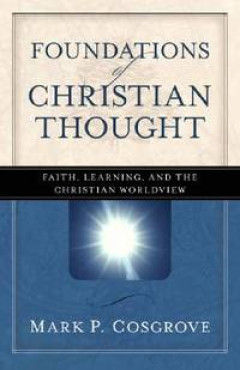
Foundations of Christian Thought: Faith, Learning, and the Christian Worldview
Foundations of Christian Thought is a clear, evenhanded presentation of the interconnection between faith and learning, and the modern worldviews competing for our attention, including naturalism, secular humanism, atheistic existentialism, pantheism, and the New Age movement. Guided by the author's fresh approach, readers on the college campus, in the workforce, and elsewhere will learn to rel…
- Edition
- -
- ISBN/ISSN
- 9780825424342
- Collation
- Softcover; 192 hlm.; 14 x 21.5 cm
- Series Title
- -
- Call Number
- 261
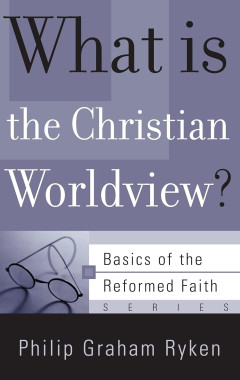
What is the Christian Worldview?
What does Christianity have to do with ordinary life? Is there a biblical perspective on our work or recreation or whatever we do? If so, how can we gain that perspective? Many people seek to have a biblical view of life, yet fail to apply that biblical mindset, or worldview, to all parts of their lives. Ryken reveals the basis of the Christian world view and describes how it affects one's view…
- Edition
- -
- ISBN/ISSN
- 9781596380080
- Collation
- Softcover; 46 hlm.; 14 x 21 cm
- Series Title
- Basics of the Reformed Faith
- Call Number
- 239
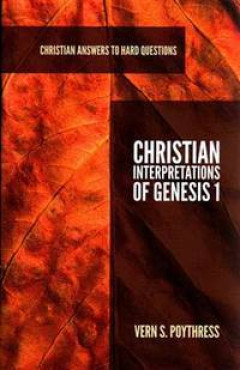
Christian interpretations of Genesis 1
Several interpretations of Genesis and scientific evidence endeavor to demonstrate harmony: among them young-earth creationism, mature creation, the day-age theory, the analogical-day theory, and the framework hypothesis. Vern Poythress explores which is best. "Though brief, this booklet is informed, irenic and instructive. It covers all the bases in an extremely readable style, and all side…
- Edition
- 1
- ISBN/ISSN
- 9781596386860
- Collation
- Softcover; 32 hlm.; 13.97 x 21.59 cm
- Series Title
- Christian Answers to Hard Questions
- Call Number
- 231.7652
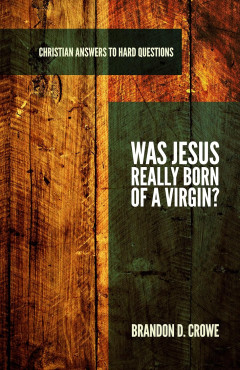
Was Jesus Really Born of a Virgin?
Do you know why the virgin birth of Christ is a significant doctrine? Brandon Crowe considers seven objections to the virgin birth and investigates the relevant biblical texts.
- Edition
- -
- ISBN/ISSN
- 9781596386808
- Collation
- Softcover; 30 hlm.; 13.46 x 20.83 cm
- Series Title
- Christian Answers to Hard Questions
- Call Number
- 232.921
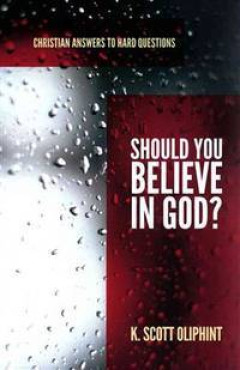
Should You Believe in God?
People increasingly demonstrate a disbelief in God. In a conversational style, apologist Scott Oliphint discusses why belief is still a preferable and more coherent position than unbelief and answers common objections to Christian belief. "Should You Believe in God? by Scott Oliphint is a very capable and winsome statement of Christian theism. I commend it to you."--Douglas Wilson, Christ Ch…
- Edition
- 1
- ISBN/ISSN
- 9781596386778
- Collation
- Softcover; 32 hlm.; 13.46 x 20.57 cm
- Series Title
- Christian Answers to Hard Questions
- Call Number
- 239
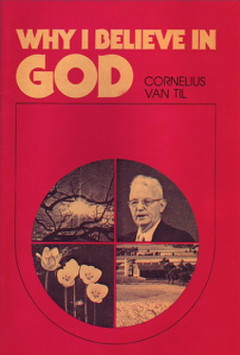
Why I Believe in God
"~""All that you expect me to do is to make it reasonable for you to believe in God. And I should like to respond quickly by saying that that is just what I am trying to do."" Why I Believe in God is a one of Van Til's most well-known essays. As one of the leading Reformed apologists of the 20th century, Van Til's argumentation possessed rare and pristine form–logic which only his unique cast…
- Edition
- -
- ISBN/ISSN
- 970875527401
- Collation
- Softcover; 16 hlm.; 14 x 22 cm
- Series Title
- -
- Call Number
- 239

Escape from Reason: A Penetrating Analysis of Trends in Modern Thought
Truth used to be based on reason. No more. What we feel is now the truest source of reality. Despite our obsession with the emotive and the experiential, we still face anxiety, despair, and purposelessness. How did we get here? And where do we find a remedy? In this modern classic, Francis A. Schaeffer traces trends in twentieth-century thought and unpacks how key ideas have shaped our society.…
- Edition
- -
- ISBN/ISSN
- 9780830834051
- Collation
- Softcover; 124 hlm.; 10.7 cm x 17.7 cm
- Series Title
- -
- Call Number
- 231.042
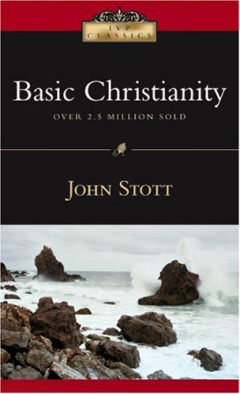
Basic Christianity
John Stott embarks on a compelling course of study that first defends the fundamental claims of Christianity and then defines the proper outworkings of these basic beliefs in the daily lives of believers. Here is a sound, sensible guide for those who are seeking an intellectually satisfying presentation of the Christian faith.
- Edition
- 3
- ISBN/ISSN
- 9780830834037
- Collation
- Softcover; 179 hlm.;
- Series Title
- -
- Call Number
- 230
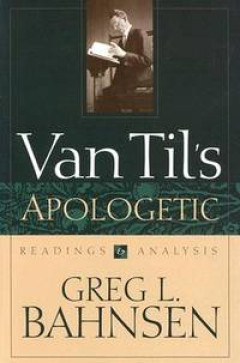
Van Til's Apologetic: Reading & Analysis
In this volume, Bahnsen has gathered the primary passages on apologetics from the vast body of works by Cornelius Van Til, arranged them topically, and added incisive commentary and analysis. The result is a carefully organized digest of all that Van Til taught about apologetics with running exposition by Bahnsen.
- Edition
- 1
- ISBN/ISSN
- 9780875520988
- Collation
- Hardcover; 764 hlm.; 16 x 23 cm
- Series Title
- -
- Call Number
- 239.092
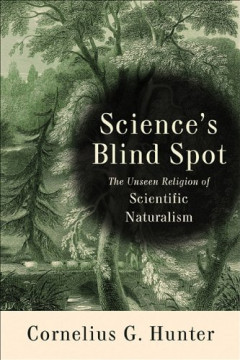
Science's Blind Spot: The Unseen Religion of Scientific Naturalism
Had evolutionists been in charge, they wouldn't have made the mosquito, planetary orbits would align perfectly, and the human eye would be better designed. But they tend to gloss over their own failed predictions and faulty premises. Naturalists see Darwin's theories as "logical" and that's enough. To think otherwise brands you a heretic to all things wise and rational. Science's Blind Spot tak…
- Edition
- -
- ISBN/ISSN
- 9781587431708
- Collation
- Softcover; 170 hlm.; 16.81 x 22.76 cm
- Series Title
- -
- Call Number
- 201.65
 Computer Science, Information & General Works
Computer Science, Information & General Works  Philosophy & Psychology
Philosophy & Psychology  Religion
Religion  Social Sciences
Social Sciences  Language
Language  Pure Science
Pure Science  Applied Sciences
Applied Sciences  Art & Recreation
Art & Recreation  Literature
Literature  History & Geography
History & Geography